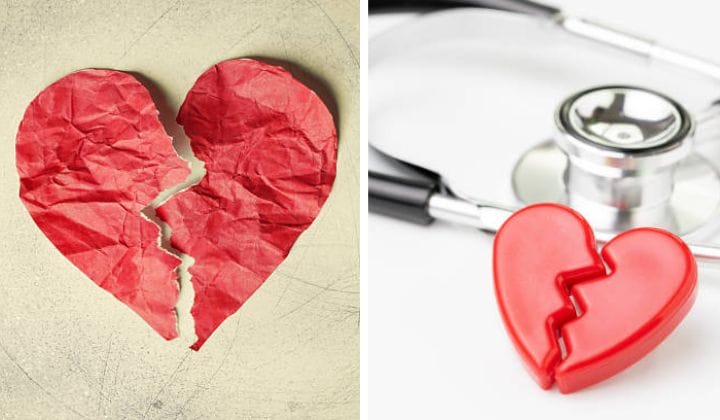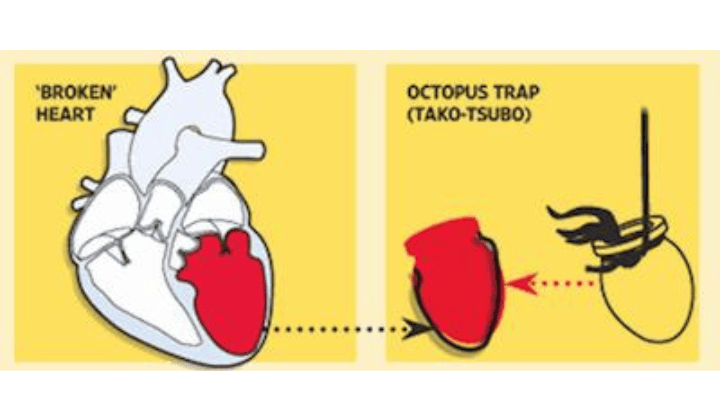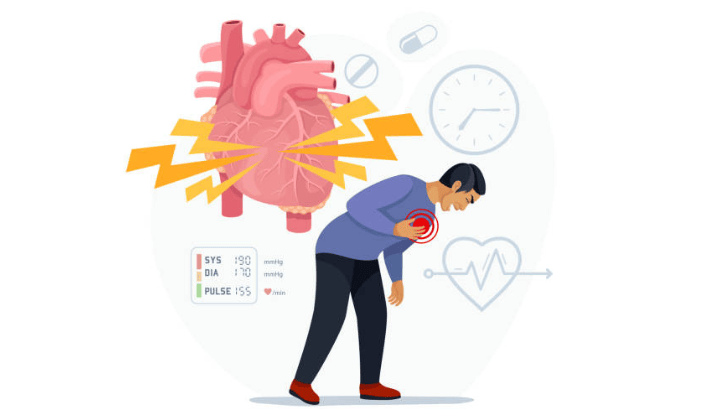What Happens When Your Heart Breaks… Literally?
According to the American Heart Association, broken heart syndrome, also called stress-induced cardiomyopathy can strike even if you’re healthy.

Subscribe to our Telegram channel for the latest stories and updates.
When you think of a broken heart, you may picture a cartoon drawing with a jagged line through it.
But did you know that a “broken heart” can lead to death?
Consultant Psychiatrist at the Universiti Malaya Medical Center (PPUM) Prof Dr Amer Siddiq Amer Nordin shared a series of tweets explaining a phenomenon called the broken heart syndrome.
The expert who often advocates for mental health and tobacco control said:
Broken Heart Syndrome. It goes to show that mental health affects physical health. That we should be kind to each other during and post relationships. That grief can kill and we should deal with it kindly too.
Consultant Psychiatrist at PPUM Prof Dr Amer Siddiq Amer Nordin
What is the broken heart syndrome?
According to the American Heart Association, broken heart syndrome, also called stress-induced cardiomyopathy can strike even if you’re healthy.
This syndrome was first described in Japan in 1990 and in the United States in 1998 thus earning the name takotsubo cardiomyopathy.
Named after an octopus trap (tako-tsubo), the appearance of the left ventricular (LV) apical balloons resembles the shape of the trap.

This weakens the heart muscle and means it does not pump blood as well as it should and is usually triggered by extreme emotional or physical stress.
What causes broken heart syndrome and why is it important to be able to differentiate it from a heart attack?
There are two kinds of stress – emotional or physical – which are often the cause of broken heart syndrome.
However, while most people with this condition experience a stressful event, up to 30% of patients have no identifiable trigger at the time of their initial symptoms.
Studies have also found that almost 80% to a 100% of cases are in women spanning from the average age of 61 years old to 76 years old.
However, there is no evidence to suggest familial inheritance.
Nevertheless, while this syndrome may resemble a heart attack, it is not as dangerous according to experts.
The British Heart Foundation noted that while most heart attacks occur due to blockages and blood clots forming in the coronary arteries, people experiencing broken heart syndrome frequently have normal coronary arteries and often do not have severe blockages or clots.
The heart cells of people experiencing broken heart syndrome are stunned by the adrenaline and other stress hormones.

Symptoms to look out for?
The symptoms of broken heart syndrome can mimic symptoms of a heart attack. These symptoms may begin as soon as minutes or as long as hours after an emotionally or physically stressful event.
Some symptoms to watch out for include chest pains, shortness of breath, excessive sweating and dizziness.
Good news, bad news?
Fortunately, this gets better very quickly in most cases, often within weeks or just a few days.
However, the bad news is that broken heart syndrome can lead to severe, short-term heart muscle failure and in rare cases, can be fatal.
Studies have shown that some people’s hearts will permanently change shape and they may continue to experience symptoms such as tiredness, chest pain and lack of energy.
About 1 in 10 people who’ve had tako-tsubo cardiomyopathy develop it again after they’ve recovered.
Share your thoughts with us via TRP’s Facebook, Twitter, and Instagram.








